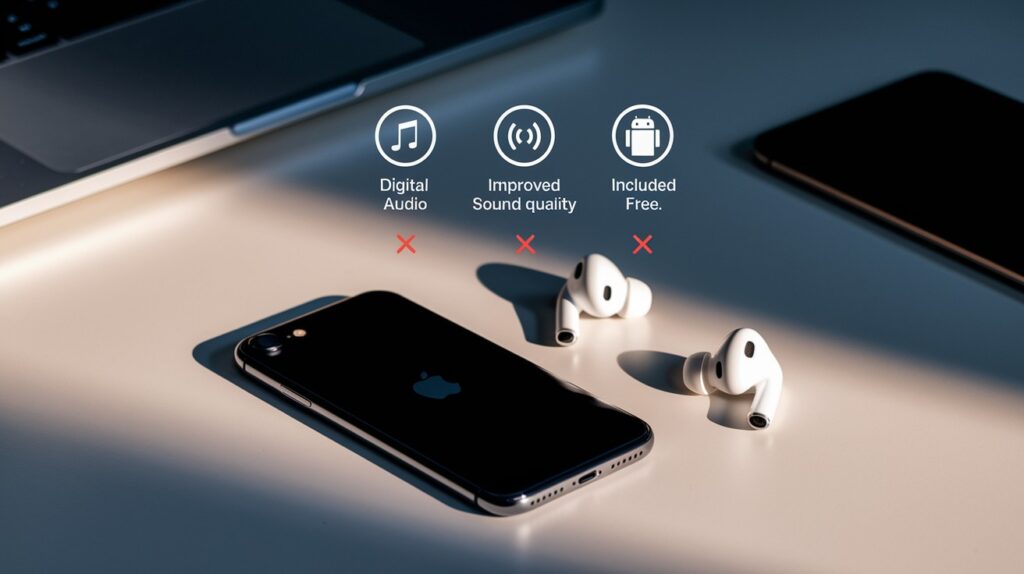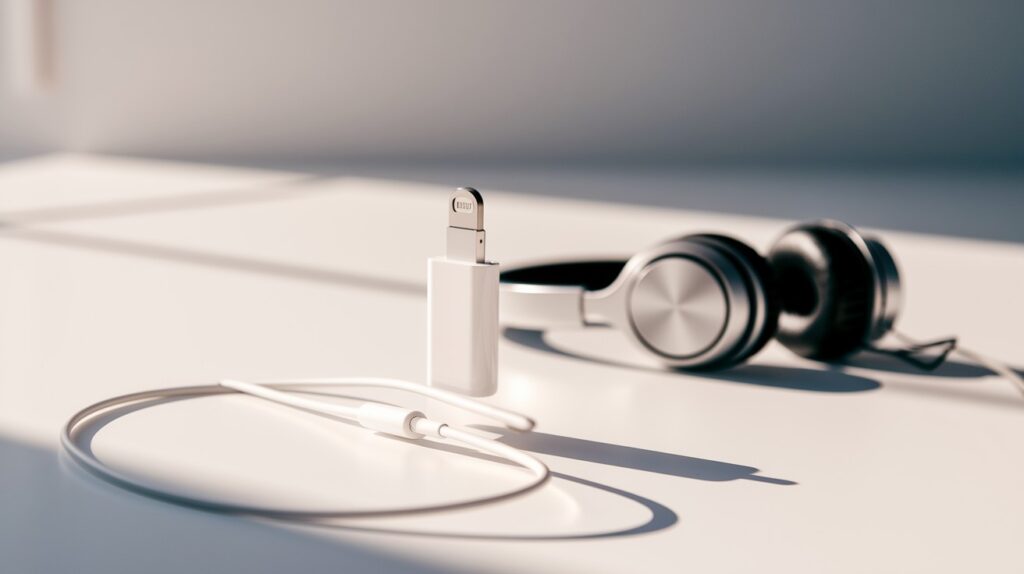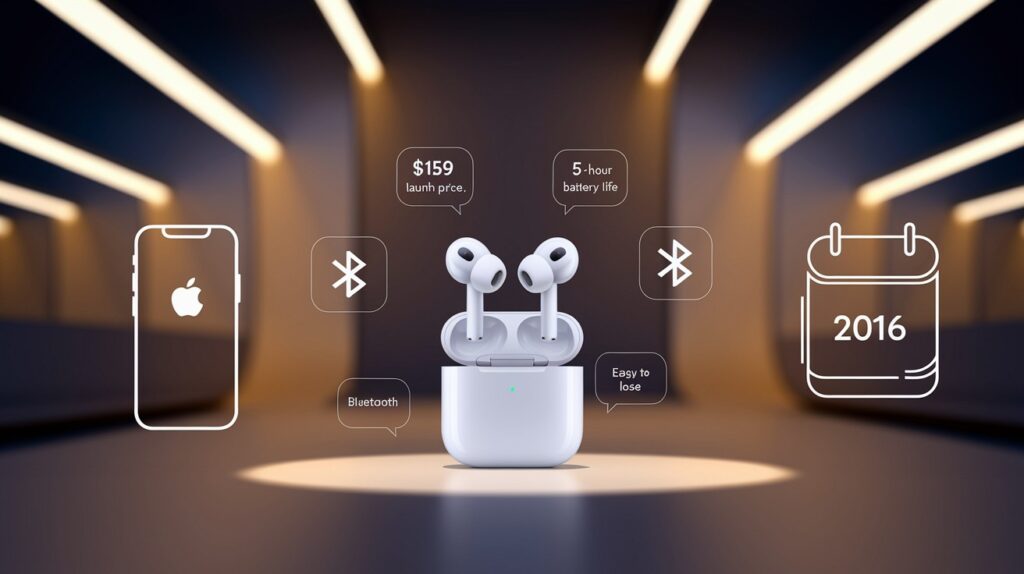If you’re wondering when Apple removed the headphone jack, you’ve come to the right place. This article will give you the exact timeline and reasons behind Apple’s controversial decision.
We’ll solve your confusion by covering the specific iPhone model that first ditched the headphone jack, Apple’s official reasons for the change, how users reacted to the removal, and what alternatives Apple offered.
You can trust this information because we’ve researched Apple’s official announcements and verified the facts. No guesswork here – just straight answers.
Many people still ask about this topic years later. Some want to buy older iPhones with headphone jacks. Others are simply curious about tech history. Whatever brought you here, we’ve got the complete story.
By the end of this article, you’ll know exactly when and why Apple made this bold move. Let’s get started with the facts you’re looking for.
The Exact Date: When Apple Removed the Headphone Jack
September 7, 2016 – The Historic Announcement
Phil Schiller took the stage at the Bill Graham Civic Auditorium. He announced the iPhone 7 and iPhone 7 Plus – the first iPhones without headphone jacks.
His famous quote? “It comes down to one word: courage.”
That single word sparked thousands of memes and angry reactions.
September 16, 2016 – Release to Public
Nine days later, you could buy these phones. September 16, 2016, became the day everything changed.
This marked the end of an era. The iPhone 6s from September 2015 was the last iPhone with a headphone jack.
Launch day brought:
- Long lines at Apple stores
- Mixed customer reactions
- High demand for Lightning adapters
- Some buyers choose older models instead
You could finally hold an iPhone 7. But you couldn’t plug in regular headphones without that little white adapter.
Apple’s Official Reasons for Removal
The “Courage” Explanation
Phil Schiller stood on stage in September 2016. He said something that made everyone talk.
“It comes down to one word: courage.”
Apple claimed they were moving to a wireless future. The headphone jack was 140 years old, according to Schiller.
Apple’s official position:
- Called it “ancient technology”
- Said wireless was “inevitable”
- Positioned themselves as industry leaders
- Compared it to removing floppy drives from iMacs
Technical Justifications
Apple gave four main technical reasons:
Space Optimization
The headphone jack took up valuable room. Removing it created space for bigger batteries and better components. The iPhone 7 got two extra hours of battery life.
Water Resistance
The jack was a weak point for water damage. Without it, Apple achieved IP67 water resistance – their first truly water-resistant phone.
Audio Advancement
Lightning audio offered digital advantages:
- Better sound quality potential
- Power for noise cancellation
- Smarter headphone features
Design Goals
Apple wanted a cleaner look. Fewer ports meant a more streamlined appearance and simplified design.
But here’s the thing: You still lost your headphone jack. These were Apple’s reasons. Not excuses for your inconvenience.
What Apple Provided as Alternatives
Apple knew you’d be upset. So they gave you three options.
-
Lightning EarPods (Included with iPhone 7)

Every iPhone 7 came with new earphones. These used a Lightning connector instead of the round plug.
Benefits:
- Digital audio processing
- Better sound quality
- Free in every box
The catch: You could only use them with Lightning devices. Your laptop or Android phone? Forget it.
-
Lightning to 3.5mm Adapter

Apple included a small white “dongle” to use old headphones.
Free inclusion timeline:
- iPhone 7-X: Included
- iPhone XS and newer: $9 separate purchase
The problem: You couldn’t charge and use wired headphones at the same time. The adapter blocked your charging port.
-
AirPods Launch (December 2016)

Apple’s flagship solution cost $159 and launched three months late.
Key features:
- Completely wireless
- Five-hour battery life
- Easy Apple device pairing
The issues:
- Expensive price point
- Easy to lose
- Delayed launch left you without Apple’s “wireless future” for months
The bottom line: Apple removed your headphone jack but didn’t give you perfect alternatives. Each option had trade-offs.
Immediate Reactions to the September 2016 Decision
Consumer Response
Social media exploded. Twitter and Reddit are filled with complaints. “Courage” became a running joke. Dongle memes flooded feeds. #DongleGate trended.
But people still bought the iPhone 7. Despite anger, it became one of Apple’s best-selling products. You complained, but you still bought it.
Tech Industry Initial Reaction
Journalists were split. Some called it “brave innovation.” Others said “user-hostile design.”
Competitors mocked Apple. Samsung ads: “We still believe in giving you more ways to be you.” Google emphasized its Pixel’s headphone jack.
The audio industry pivoted fast:
- Headphone makers created Lightning versions
- Wireless development accelerated
- Dongle demand exploded
Here’s the irony: Competitors mocked Apple but copied it later. Samsung removed its jack two years later. Google followed with the Pixel 2.
The pattern: Public outrage, continued sales, competitor mockery, then industry-wide copying.
Conclusion
Apple’s headphone jack removal sparked massive controversy in 2016. They claimed “courage” and technical benefits. You got angry but bought the phone anyway. Competitors mocked them publicly, then quietly followed suit. The wireless future Apple promised eventually arrived – just not immediately.
Looking back, Apple was right about the direction but wrong about the timing. The transition was messier than they admitted. You paid the price for their bold experiment. But the industry did move forward, exactly as Apple predicted it would.
Today, most phones lack headphone jacks. Apple’s controversial decision became the new normal.
Frequently Asked Questions
Which iPhone was the first without a headphone jack?
The iPhone 7 and iPhone 7 Plus, announced September 7, 2016, and released September 16, 2016, were Apple’s first headphone jack-free models.
What was the last iPhone with a headphone jack?
The iPhone 6s and iPhone 6s Plus, released in September 2015, were the final iPhone models to include the traditional 3.5mm headphone jack.
Why did Apple remove the headphone jack from iPhones?
Apple cited “courage” to advance technology, claiming removal enabled better water resistance, more internal space, and pushed the industry toward wireless audio.
Did Apple include anything to replace the headphone jack?
Yes, Apple included Lightning EarPods and a Lightning-to-3.5mm adapter with iPhone 7. AirPods launched separately three months later for $159.
Can you still use regular headphones with newer iPhones?
Yes, but you need Apple’s Lightning-to-3.5mm adapter ($9) or third-party alternatives. Many users have switched to wireless headphones or Lightning-compatible models.
Did other phone companies follow Apple’s headphone jack removal?
Yes, Samsung removed it from the Galaxy Note 10 (2019), Google from the Pixel 2 (2017), and most major Android manufacturers eventually eliminated headphone jacks.








